-
INSTALLATION
PAINTING
PHOTO SOUND <VIDEO>
PUBLICATION
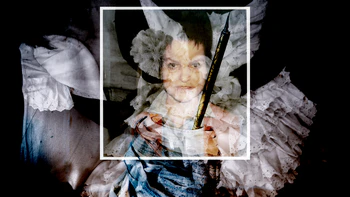
Within Me Rests the Still Life of a Bottomless Vase
2025
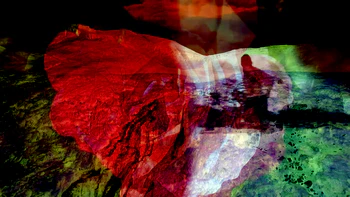
In the gaze of the tungsten eyes of a golden fly, the ravenous roses of
geometry blossom
2025
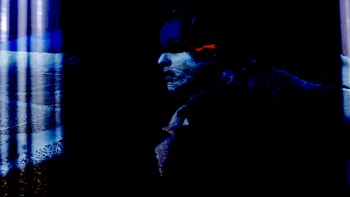
In a Space where Shadows play hide-and-seek
2024
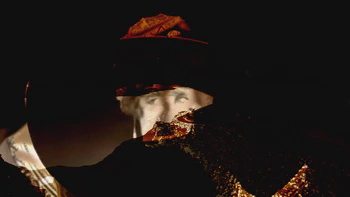
A Ride on the Ticker Tape of Lost Thoughts
2024
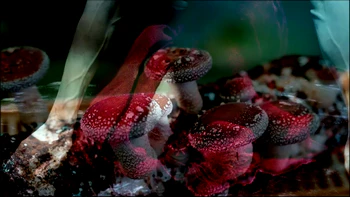
it will be true forever
2023
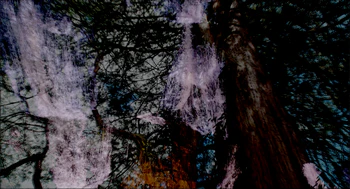
BREATH . TREES LOADED WITH DEAD THINGS
2023
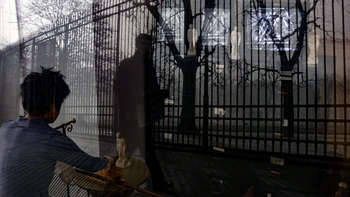
... AND THE MOON IS ALMOST HIDDEN
2023
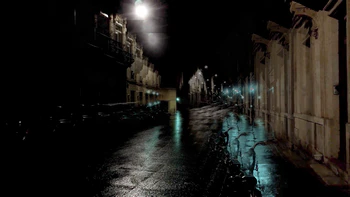
Later that same night, the dogs tuned their violins
2023
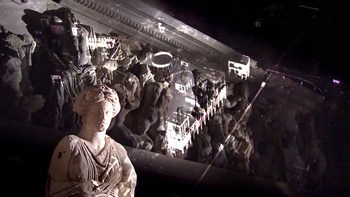
WHEN LARKS SMOKE CIGARS
2023

... AND THE MOON IS ALMOST HIDDEN
2022
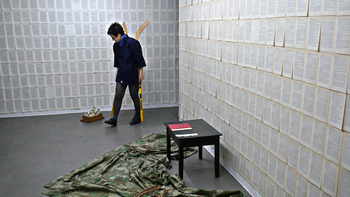
FROM THE HORSE'S MOUTH
2021
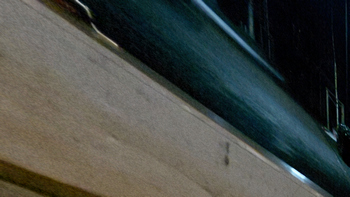
... und Wolken stiegen aus ihren Taschen
2021
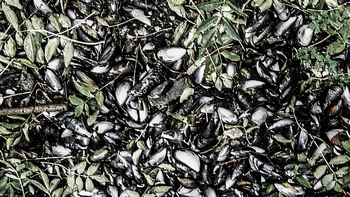
SOMETHING SPOOKED THE HORSES
2020
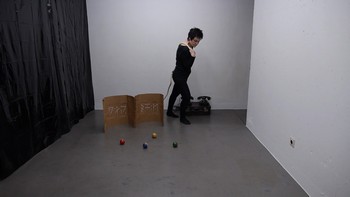
ANGEL'S PIN NUMBER
2020
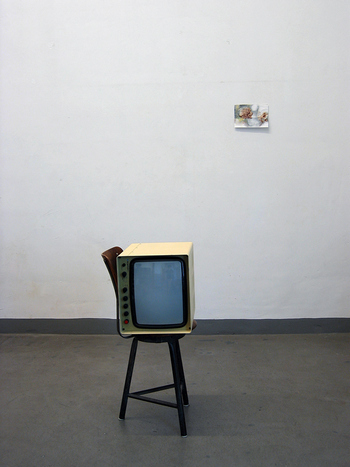
off
2017
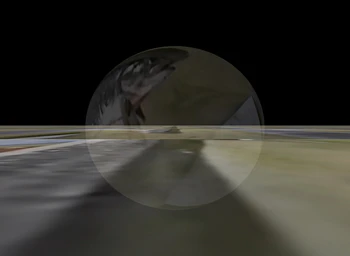
Don't piss down my back and tell me it's raining
1996/2015
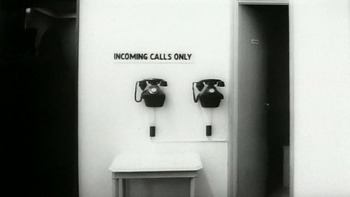
INCOMING CALLS ONLY
2011
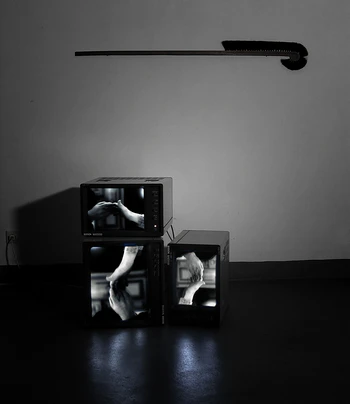
Noah's Blues
2011
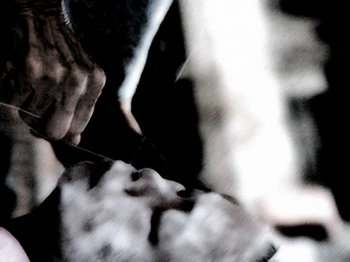
3 HALF 2
2008
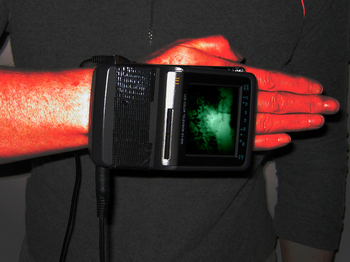
carbon heart
2003

Within Me Rests the Still Life of a Bottomless Vase
2025

SubSeven
2001
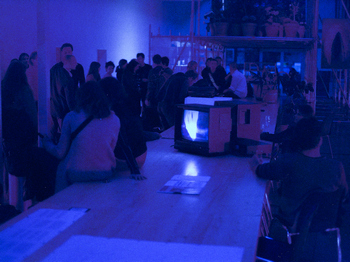
PARK YOUR CAR AT THE RHUMBA PARTY
2000
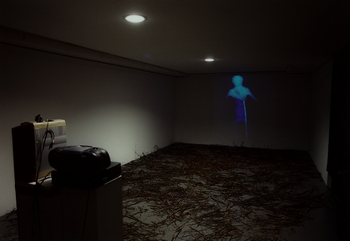
Quiet Steps
1999
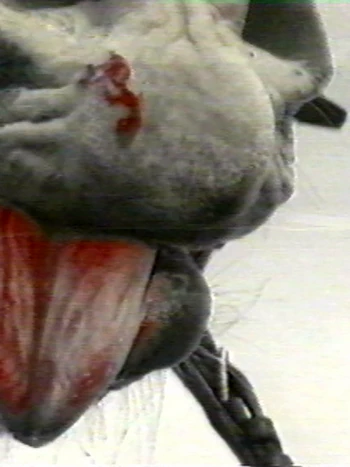
The Threefold Life
1997
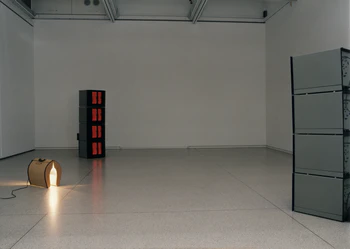
Fire Water Burn
1997

GeneLog
1996
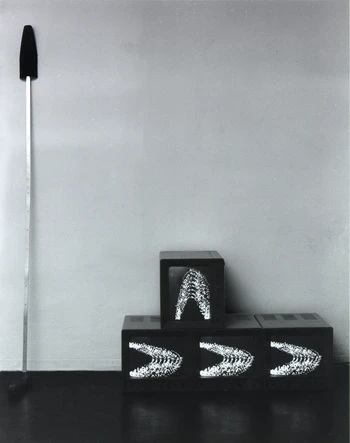
Wenn Engel keine Flügel verleihen
1996
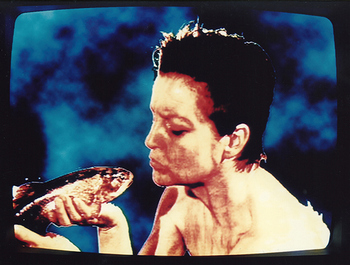
La recherche de la vérité
1996
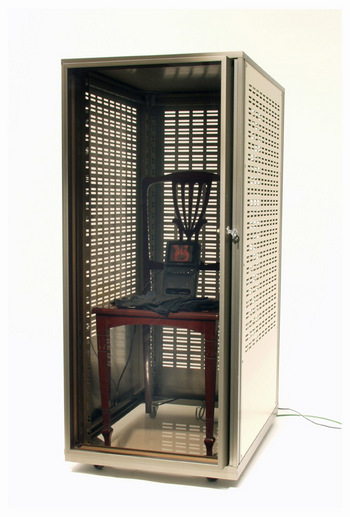
Untitled
1994
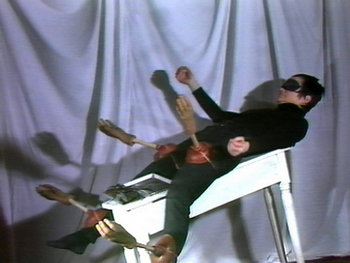
Reflecting in my soda seat
1994
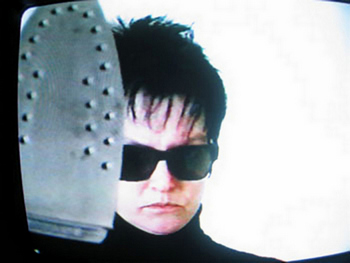
Park my car at the Rumba Party
1993
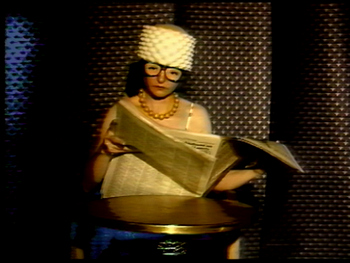
Who killed the sandman?
1991
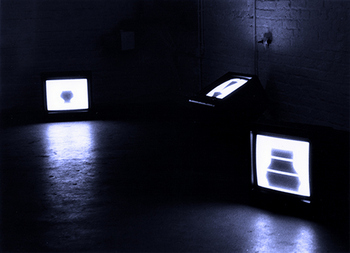
Paranormaler Swin
1990
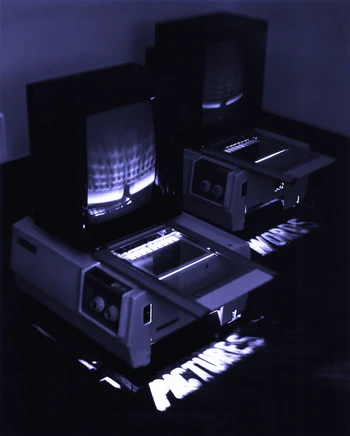
Smoke Cigars
1990
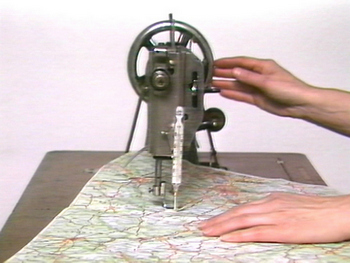
Flying Piranhas
1990
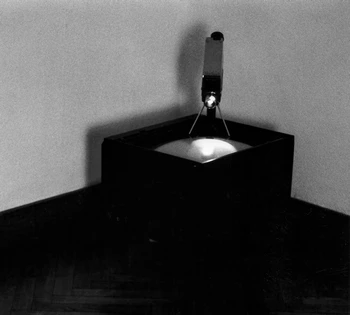
Amnesia
1990

Neptun's Landgang
1990
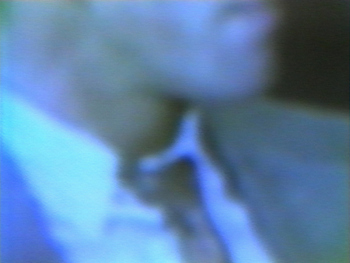
Papa Zulu
1987

Die Gedanken sind frei
1987
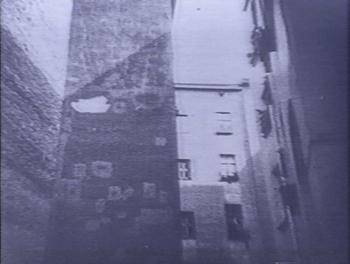
Double Dutch
1987
*Laudatory speech (short text) by Reinhold Mißelbeck at the presentation of the Chargesheimer Scholarship from the city of Cologne, 1995
The all-devouring moloch of everyday life
Rosy Beyelschmidt's artistic work and biography are closely related. Her own personal fight for survival has permeated her work and defined her subjects. The self-portraits she totally alienates by means of photocopies – by definition faithful reproductions of original images – reflect states of mind, psychological distress and feeling. She forever assumes new identities, exposes herself to all kinds of situations and sometimes turns her photocopy pictures into large-format photographic works, subsequently even installations. The end of the 80s saw the advent of the video, a medium that allowed her to introduce the aspect of time into her work.
In her videos, isolation, or human loneliness, is associated with everyday realities and necessities. Communication degenerates into an absurd dialogue between things, the act of coping with everyday life leads to chaos, to the meaninglessness in which the original protagonist falls victim to things, becomes a thing herself. Even if she is the actor, she refers to mankind in general, or perhaps more to women, with whom she is able to identify more easily. But her work simultaneously proves that the absurdity of this theatre does not lead to an abandonment, but that this drama is continued: life is the absurd theatre of our everyday world.
Rosy Beyelschmidt's work is not analytical; it is descriptive. She observes and examines the world around her and reactions and emotions within herself. She relates the two; she reveals relationships. Looking through her work, we tend to conclude that Rosy Beyelschmidt apparently does not seek answers, since it is a big enough challenge for the artist to grasp the complexity of the questions and to reveal their relationships to each other. But it is at this moment – this is what emerges from her videos – that possible answers to these questions are already hidden.
Media art proves to be an especially suitable means of linking reproductions of reality with imagination in order to visualize the sentiments, emotions and fears that they trigger. In her photocopy work and videos, inner deformations metamorphose into external deformations; it becomes clear what the skilfully contrived facade of our lifestyles and the "keep smiling" fronts we put up usually conceal. Behind rehearsed storylines, an awkwardness surfaces in her films, the obviousness of functional classifications in our everyday life becomes doubtful and sometimes out of place. Rosy Beyelschmidt exposes natural actions, our everyday environment, as a series of pointless, empty rituals, the purpose of which can suddenly turn into the opposite of what it appears to be.
Dr. Reinhold Mißelbeck ©
Head of the Photo and Video Collection at Museum Ludwig, Cologne, DE